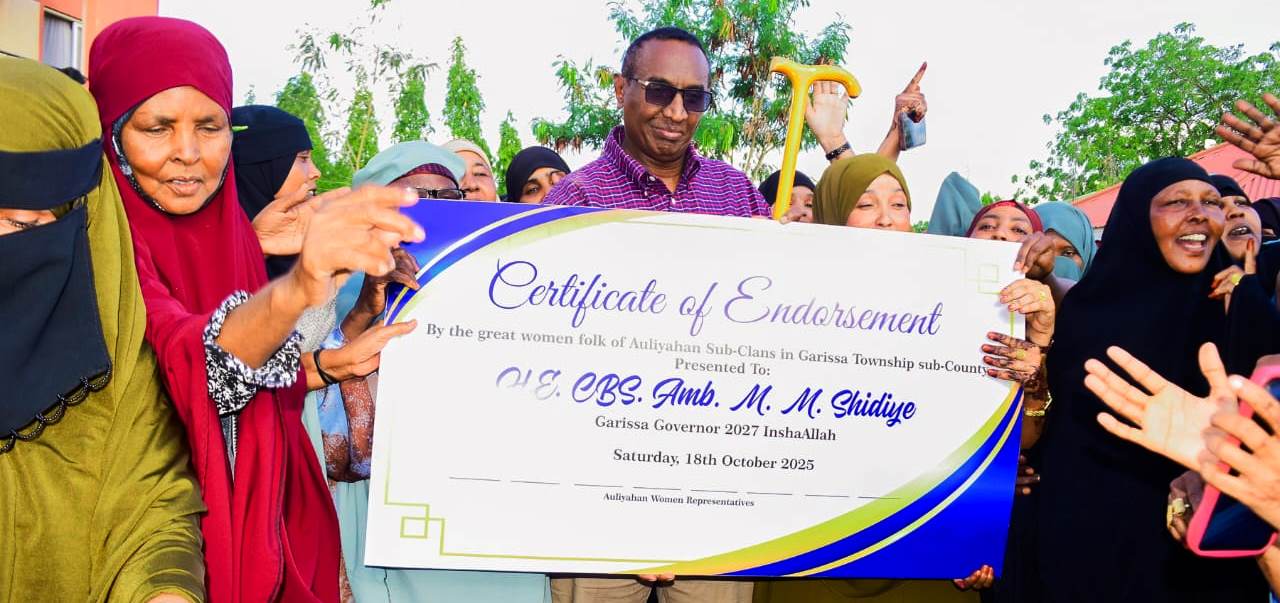KTDA chairman Chege Kirundi. PHOTO/FILE
By CHEGE KIRUNDI
When I assumed leadership at KTDA, I was acutely aware of the enormous responsibility resting on my shoulders. This is not just an institution; it is the economic lifeline of over 680,000 smallholder farmers and a cornerstone of Kenya’s agricultural exports.
KTDA has made great strides in developing the tea sector, but we must be honest: the challenges we face are significant and systemic. My approach is not to manage the status quo but to lead transformative change rooted in innovation, strong governance, and environmental sustainability.
At the heart of this transformation lies a profound philosophical shift: KTDA must be farmer-centric. For too long, decisions have been made without full consultation with the very people who sustain this industry. That must change. My vision puts the farmer at the centre of everything; governance, value creation, market expansion, and long-term strategic planning.
We are establishing structured platforms to ensure that farmers have a direct voice in KTDA’s decision-making. This will not only restore trust but also ensure reforms reflect the real needs and aspirations of our stakeholders.
Our credibility as an institution must rest on transparency and accountability. Under my leadership, we are introducing rigorous internal audits, clearer performance metrics, and enhanced financial transparency.
These are not just bureaucratic instruments—they are essential tools to allow every farmer to track how their contributions are used and how their interests are safeguarded.
All this aligns closely with the reforms under the Tea Act of 2020, which we are embedding into KTDA’s institutional DNA. This legislation provides the framework; our role is to bring it to life through operational excellence and cultural transformation.

Tea plucking in progress. PHOTO/FILE
Tea is among the most climate-sensitive crops in the world. With shifting weather patterns, irregular rainfall, and rising temperatures, the very future of tea farming is under threat. As stewards of this sector, we cannot afford to ignore this reality.
KTDA is actively investing in climate-smart agriculture. Our initiatives include conservation tillage, rainwater harvesting, soil regeneration, and afforestation. But our commitment goes further; we’re exploring the carbon credits market.
With the right systems, the sustainability efforts of our farmers can translate into measurable, monetisable value, creating new income streams while elevating Kenya’s position as a leader in ethical, environmentally conscious trade.
Another core pillar of our strategy is the transition to renewable energy. Many of our factories are energy-intensive, relying heavily on biomass or grid electricity. We are investing in solar, small hydro, and biomass-to-energy solutions.
This shift will not only cut operational costs and reduce our carbon footprint, but also improve our ESG performance and unlock premium export markets that demand responsible sourcing.
Indeed, KTDA’s long-term vision goes beyond tea production. The KTDA Board envisions a bold future: to position the agency as a leading player in the global food and beverage industry, integrated into the world food system. This aspiration is underpinned by a holistic approach to sustainability and development, captured in the 3Ps: Planet, People, and Prosperity.
Our future direction will be ESG-compliant, adhering to best practices in environmental, social, and governance standards, and aligned with International Public Performance Reporting (IPP) frameworks.
This will ensure we are not only responsible stewards of the environment and society, but also accountable to our partners, shareholders, and global markets.

A tea plantation. PHOTO/FILE
For decades, Kenya’s tea sector has depended heavily on bulk exports—an approach that leaves farmers vulnerable to market volatility and global pricing pressures. It is time to pivot. KTDA is embracing value addition, venturing into specialty teas, branded packaging, and diversified service offerings including crop insurance, logistics, and micro-financing.
Our objective is clear: to evolve from a volume-driven exporter to a value-focused enterprise that rewards farmers more fairly and builds resilience through innovation.
We are also expanding our international footprint. Through digital platforms and strategic partnerships, KTDA is targeting new and premium global markets. Our aspiration is to offer the world not just tea, but wellness, providing health-enhancing tea products that promote the well-being of consumers globally.
The health benefits of tea are well-documented, from antioxidants to metabolic support, and our commitment is to make these benefits accessible to the world population. KTDA seeks to be a beacon of health, sustainability, and ethical leadership in global agri-business.
This is not just a corporate ambition, it is a moral imperative. By transforming KTDA, we uplift entire communities, foster prosperity, and ensure that our farmers, the custodians of our land, are rewarded and respected.
Through public-private partnerships, alignment with international standards, and continued engagement with stakeholders, our goal is to build an inclusive, climate-resilient supply chain. One that sets the pace for similar models across Africa and the Global South.
KTDA’s transformation journey is more than a strategy—it is a movement to redefine how agriculture serves people and the planet. If we succeed, we will have built not just a better KTDA, but a healthier, more equitable future for generations to come.
This is no time for business as usual. It is a time for bold leadership. And I am ready to lead.
The writer is the Chairman of the Kenya Tea Development Agency (KTDA)
This story was first published in the KTDA Magazine.



















